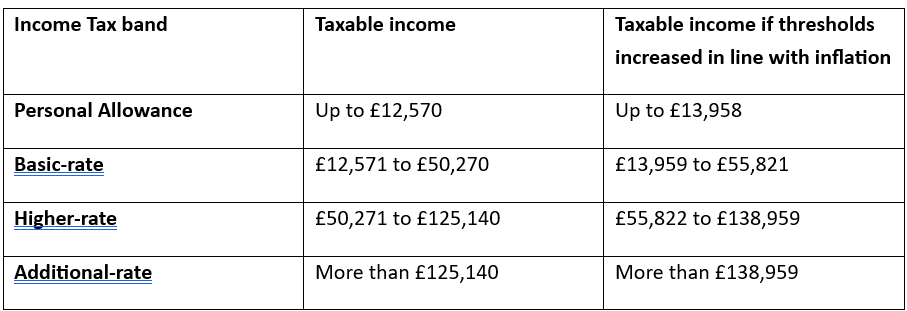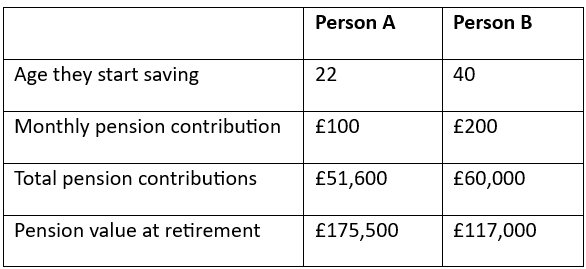Investment market update: March 2025
Trade wars and fears that tariffs could spark recessions meant investment market volatility continued in March 2025 and the start of April 2025. Read on to find out more about some of the factors that may have affected the value of your investments recently.
Tariffs imposed by US President Donald Trump affected markets negatively and, as other countries react to the measures, there continues to be uncertainty.
While market volatility and periods of downturn can be worrisome, remember it’s part of investing. Historically, markets have delivered returns over long-term time frames, even after periods of downturn, and often sticking to your investment plan makes financial sense. So, if you’re tempted to react to the news, reviewing your long-term plan and goals could be useful.
UK
Chancellor Rachel Reeves delivered the Spring Statement at the end of March, setting out the government’s spending plans, against a challenging backdrop.
The UK economy contracted by 0.1% in January 2025 when compared to a month earlier following a decline in factory output. In addition, while the rate of inflation is declining, at 2.8% in the 12 months to February 2025, it’s still above the Bank of England’s (BoE) 2% target.
The news prompted the BoE to hold its base interest rate at 4.5%, which will have disappointed households and businesses that were hoping for a cut to ease the cost of borrowing.
Data from Purchasing Managers’ Indices (PMI) was pessimistic too.
According to S&P Global, the manufacturing sector continues to face tough conditions. The headline figure was 46.9 in February. It’s the fifth consecutive month that the reading has been below the 50 mark which indicates growth. There were declines in output, new orders, and employment.
The construction data was similar, with the headline figure falling to 46.6, the biggest downturn since 2009 aside from the 2020 pandemic. There were steep declines in housebuilding and civil engineering activity.
Despite speculation that Reeves would increase taxes and reduce tax thresholds or exemptions, the Spring Statement focused on cutting the welfare budget. Indeed, the announcements made in the 2024 Autumn Budget remain intact.
Investment markets were affected by US trade wars and the war in Ukraine.
On 3 March, European leaders met in London for a summit to draw up a Ukraine peace plan. The meeting led to the pound and European stock market soaring as investors hoped for a resolution. Perhaps unsurprisingly, defence stocks saw the biggest gains, including the UK’s BAE Systems, which jumped by more than 14%.
However, the boost was short-lived. On 4 March, trade wars between the US and Canada, Mexico, and China triggered a drop of 1.27% on the FTSE 100 – an index of the 100 biggest companies on the London Stock Exchange.
There was an uptick in optimism towards the end of the month.
On 24 March, investors hoped that President Donald Trump would show flexibility ahead of the unveiling of new global tariffs in April. The FTSE 100 opened 0.5% up, with mining stocks leading the rally – winners included Anglo American (3.9%), Antofagasta (3.3%), Glencore (3%), and Rio Tinto (2.5%).
However, in early April, Trump unveiled tariffs on many countries, including the UK, which led to markets falling.
Europe
Data from the European Central Bank (ECB) shows inflation is moving closer to the 2% target. It was 2.4% in the 12 months to February 2025 across the eurozone.
The news prompted the ECB to cut the base interest rate by a quarter of a percentage point to 2.25%.
Data suggests the wider European economy is facing similar challenges to the UK.
Indeed, S&P Global PMI figures show a factory downturn. In addition, the headline PMI figure fell from 45.5 in January to 42.7 in February. Worryingly, the two largest economies in the EU, Germany and France, experienced the sharpest downturns.
The Euro Stoxx Volatility index, which tracks investor uncertainty, found stock market volatility hit a seven-month high in February and has more than doubled since mid-December 2024 due to investors feeling nervous about the global outlook.
So, it’s not surprising that there have been ups and downs for investors.
The 3 March summit in London benefited wider European stock markets. Again, defence stocks saw the biggest gains – Germany’s Rheinmetall, France’s Thales, and Italy’s Leonardo all saw an increase of at least 14%.
Expectations that US tariffs will hit the automaker industry led to stocks in the sector falling on 4 March. Among the shares affected were tiremakers Continental, which saw a 9% drop, as well as Daimler Truck (-6.6%), BMW (-5.5%), and Mercedes-Benz (-4.5%).
Similar to the UK, European markets were negatively affected by US tariffs at the start of April.
US
US inflation is nearing the Federal Reserve’s 2% target after a rate of 2.8% was recorded in the 12 months to February 2025.
However, there was negative news from the labour market. According to the Bureau of Labor Statistics, the unemployment rate edged up to 4.1% in February.
PMI readings for the manufacturing sector also reflected this trend. New orders fell in February and companies continued to lay off staff, which may suggest they don’t feel confident in the future. Yet, the sector has grown for two consecutive months.
On 3 March, in contrast to Europe, Wall Street dipped slightly. The technology-focused Nasdaq index was down 0.8% and the broader market indices Dow Jones and S&P 500 both fell 0.3%.
The following day, Trump declared 25% tariffs on imports from Canada and Mexico and 10% tariffs on imports from China. The news led to the dollar weakening, and indices tumbling further – the Nasdaq fell 2.6% and S&P 500 was down 1.7% – and the declines continued into the next week.
Technology stocks in particular have been hit hard by the market volatility. AJ Bell warned since the start of 2025, $1.57 trillion (£1.21 trillion) had been wiped off the value of the Magnificent Seven – seven influential and high-performing US technology stocks – as of 4 March.
Carmaker Tesla is among the biggest losers. As of mid-March, its share price had halved since it benefited from a post-election rally at the end of 2024, which has partly been driven by sales in the EU falling by almost 50%.
Once again, the uncertainty caused by trade wars led to volatility in the US markets.
Asia
As a country with a trade surplus and a large US market, tariffs are expected to hamper growth in China.
China’s GDP target is 5% for 2025, the same target it hit in 2024. However, economists believe replicating this in 2025 will be difficult. China succeeded in reaching the 2024 target thanks to an export boom at the end of the year – exports increased by 10.7%, as some businesses tried to beat the expected tariffs.
In contrast, between January and February 2025, Chinese imports fell by 8.4% year-on-year after economists had expected growth of 1%. The data might suggest that Chinese manufacturers are cutting back on buying raw materials and parts due to trade concerns.
Tariffs imposed by the US led to China unveiling similarly high tariffs at the start of April. The trade war is likely to affect China’s economy and its ability to reach GDP goals in 2025.
Please note: This blog is for general information only and does not constitute financial advice, which should be based on your individual circumstances. The information is aimed at retail clients only.
The value of your investments (and any income from them) can go down as well as up and you may not get back the full amount you invested. Past performance is not a reliable indicator of future performance.
Investments should be considered over the longer term and should fit in with your overall attitude to risk and financial circumstances.

